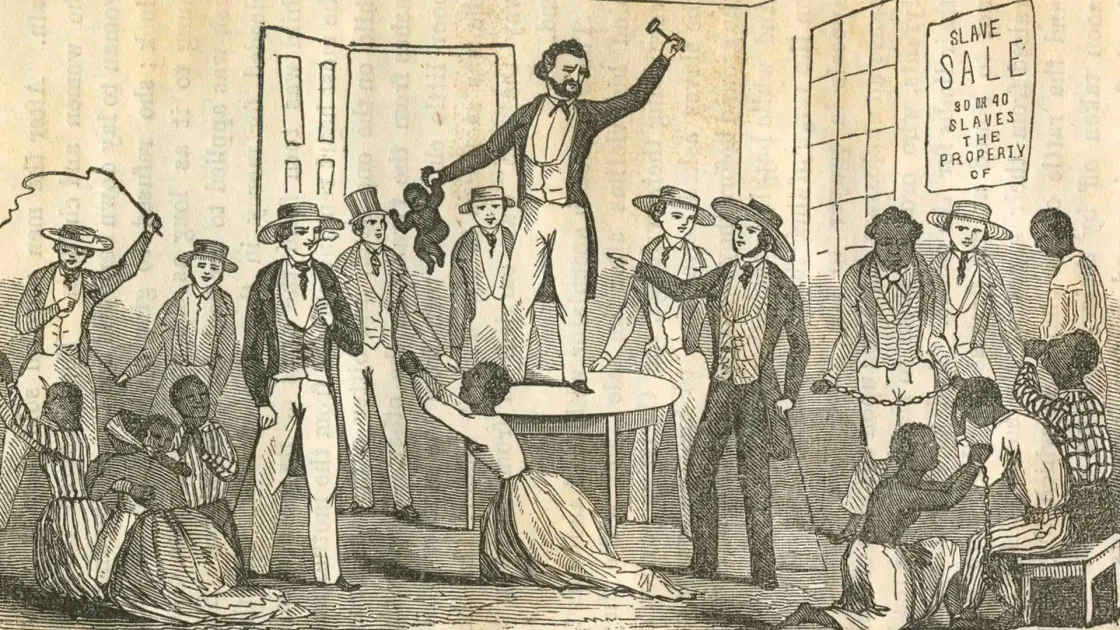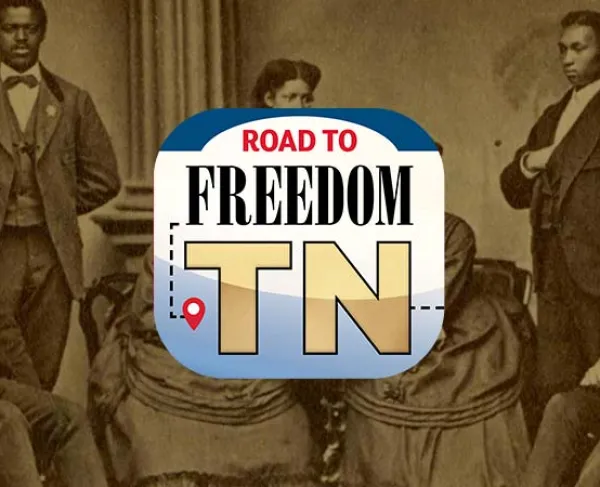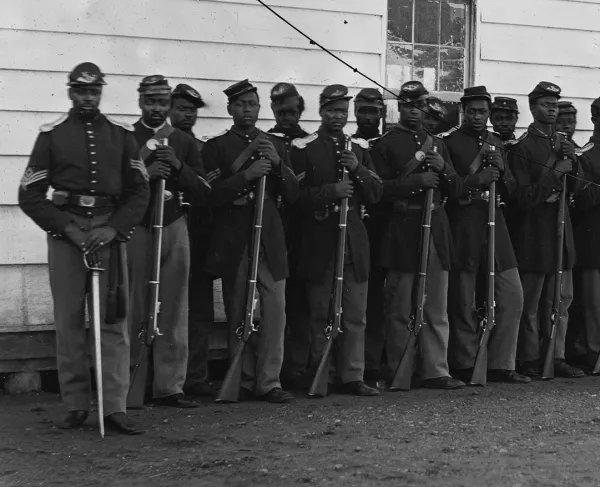Slave Markets, Colored Troops, Freedman’s Bank and Exodusters
Tennessee
400 Charlotte Avenue
Nashville, TN 37219
United States
This heritage site is a part of the American Battlefield Trust's Road to Freedom: Tennessee Tour Guide app, which showcases sites integral to the Black experience during the Civil War era. Download the FREE app now.

Today’s cityscape obscures the history that happened at this intersection between the 1830s and 1880s, but some clues remain in the historical markers found on the corners.
Before the Civil War, the blocks where Cedar Street (Martin Luther King, Jr. Blvd/Charlotte Avenue) and Cherry Street (4th Avenue North) intersected housed slave brokers — along with bankers, insurers, and other businesses that enabled the trade in enslaved African Americans. These traumatic and dehumanizing dealings involuntarily trafficked enslaved people throughout the south. This tragic commerce also enriched enslavers and fueled the economic development of Nashville, and beyond.
During the war, the Union army’s Bureau of United States Colored Troops located its Tennessee recruiting headquarters at 38 Cedar Street.
Founded in 1865, the Nashville branch of Freedman’s Savings and Trust Company moved into Liberty Hall at 44 Cedar Street, adjacent to a former slave market, in 1871. Congress chartered the Freedman’s Bank to support the financial rise of newly freed African Americans by helping protect and grow their savings. The Nashville branch, led by a Black manager and nearly all Black trustees, attracted thousands of depositors and helped them navigate the post-war economy. But a combination of the Panic of 1873, risky investments, corrupt dealings, and insufficient oversight — all at the national level — led to institutional collapse. The Nashville branch entered liquidation in December 1874. Depositors lost both money and faith in the banking system.
Liberty Hall also hosted African American cultural events and political assemblies. In May 1875, Black representatives from eight Tennessee counties gathered here after the lynching of Jo Reed to urge emigration to other states which seemed to promise more freedom and less terror. Many so-called “Exodusters,” following leaders like Nashville’s Benjamin “Pap” Singleton, joined the voluntary, mass migration of African Americans from Tennessee to Kansas and other states in the 1870s and 1880s.
Some who stayed in Nashville established a Black business district here in the early 20th century. Only the Morris Memorial Building 330 Charlotte Avenue, designed by African American architects, remains.

